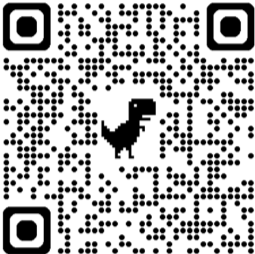891 Final Week Content - Imposter Syndrome
Imposter, HWE, Caring Practices, Collab, Coach
Create multiple-choice games on Wisc-Online and play them on our Chakalaka mobile app!
But that's not all! Explore educational games created by others. Simply search by category or enter agame code number and dive into a world of learning and fun.
Download the Chakalaka mobile app here:

Topics of this game:
- This is operationally defined as, "internal experience of intellectual phoniness"
- Who is most likely to experience imposter syndrome?
- The following is NOT a characteristic someone with imposter syndrome may display:
- Symptoms associated with imposter syndrome include all except:
- "A transient experience associated with specific situations such as starting a new job or moving into a new role" describes...
- situation of increased role performance demand
- Someone who: Measures performance Drives the relationship Standardized but informal Encourage self-discovery Align with what the client wants to receive
- Someone who: Doesn't measure performance Does not drive the relationship Personalized and formal Shares knowledge from one who is experienced
- What does not delineates collaboration from consultation?
- defined as an explicit element embedded within the decision support materials that can facilitate a self-directed approach to the process of decision making.
- may also be referred to as decision support, counselling, navigation, and/or facilitation of the decision-making processes.
- A CNS tells another CNS her concerns with a patient
- A CNS tells another CNS her concerns with a patient and then asks for recommendations/opinions
- A CNS calls for a family meeting with GI, ICU, PT, and Cards to facilitate a plan of care for a patient.
- Often the person is appointed to the job
- Mentorship is a...
- Knowledge Clinical experience Familiarity Time
- When is an APRN in limbo?
- During the ____ phase(s) in role development, you are more likely to develop imposter phenomenon?
- Which of the following is not one of the four role implementation models?
- ·subjective feeling of frustration, tension, or anxiety in response to role stress
- Dynamic process of change over time as new roles are acquired?
- situation of increased role performance demand Examples: returning to school while maintaining work and family responsibilities, coping with restrictions related to payment system limitations, expectation of increased workload
- How long is the transition from novice to proficiency?
- Tthe ability of the nurse to recognize, appreciate, and incorporate differences into the provision of care
- The shared experiences of acts, beliefs, values, language, attitudes, words, institutions, rules, rituals, images, spiritual practices, knowledge, and relationships which are shaped and articulated within social systems
- What is someone who shares their knowledge, skills, and/or experience to help another grow?
- What is someone who provides guidance to a client on their goals and helps them reach their full potential?
- A nurse asking about patient as a person is what part of SCCM recommendations for sensemaking?
- A nurse encouraging family to participate in rounds is what part of SCCM recommendations for sensemaking?
- A nurse encouraging family to coach patient is what part of SCCM recommendations for sensemaking?
- A nurse decoding the environment (cue sorting) is what part of SCCM recommendations for sensemaking?
- Which of the following is not an example of courage? select all that apply.
- child with DM is in the foreground and family who supports him is in background. Education may be geared to how family can help him care for his disease and how to administer meds.
- CNS considers the dynamics or quality of the relationship as a unit and intervene with a conflict resolution program
- What is Quality that must be present to ensure a trusting relationship with the patient and family?
- What is Moral awareness of being of service to others on professional level?
- What is values obligation to meet the needs of patients in a deliberate course of action based on moral obligation?
- Which of the 6 HWE standards does the CNS not directly affect?
- What competencies is emotional competence needed to achieve?
- Which is not one of the three components of emotional competence
User comments are currently unavailable. We apologize for the inconvenience and are working to restore this feature as soon as possible.

